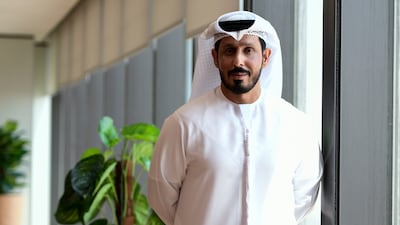The UAE seized and confiscated assets worth more than Dh1.3 billion ($354 million) from March to mid-July 2023, as it stepped up its fight against money laundering and the financing of terrorism, a top official said.
The Emirates also issued fines totalling Dh199 million in the first half to combat money laundering, which exceeded the total amount of 2022 (Dh76.2 million), 2020 (Dh8.4 million) and 2019 (Dh800,000) combined, state news agency Wam reported on Monday, quoting Hamid Al Zaabi, director general of the UAE’s Executive Office of Anti-Money Laundering and Counter Terrorism Financing.
“The UAE has completed a comprehensive review of AML/CFT [Anti-money laundering/Countering the financing of terrorism] progress made in the first half of 2023 which shows significant improvement across the board,” Mr Al Zaabi said.
He also stressed that confiscating illicit proceeds is a "high priority" for authorities to ensure that the criminal funds are confiscated and prevented from entering the financial system again, deterring further criminal activity.
Between March and mid-July 2023, the UAE prioritised investigations and prosecutions of large-scale, complex money laundering cases.
During this period, 183 new money laundering cases were launched nationally by the relevant investigation and prosecution authorities, he said.
The UAE continued to carry out the national action plan and national AML/CFT strategy and is “resolutely pursuing its agenda for combating illicit financing and preserving the integrity of the global financial system”, Mr Al Zaabi told Wam.
Established in February 2021, the Executive Office is charged with overseeing the enforcement of the UAE’s National AML/CFT Strategy and the National Action Plan.
Primarily a national policy and coordinating body on AML/CFT efforts, the Executive Office has a wide-ranging mandate to ensure the UAE has a sustainable and resilient framework and is currently coordinating with more than 80 government entities and law enforcement agencies in the country, Mr Al Zaabi told The National in an interview in October.
The UAE has made significant progress in combating money laundering, the financing of terrorism and weapons proliferation over the past few years.
The Arab world’s second-largest economy has passed strict AML/CFT laws and has issued a number of regulations over the years to clamp down on financial crime.

Mr Al Zaabi said the UAE will continue to build its “long-term, sustainable AML/CFT capabilities to detect, investigate and understand money laundering and terrorist financing and will continue to broaden its international co-operation”.
In the first quarter of the year, a UAE delegation led by the Executive Office participated for the first time in plenaries of two Financial Action Task Force (FATF)-style regional bodies, including the Asia/Pacific Group and Eurasia Group.
The Emirates also reported a 17 per cent increase in total suspicious transaction reports between the first quarter to the second quarter of 2023, Mr Al Zaabi said.
Designated non-financial business and professions (DNFBP) submissions increased by 14 per cent, and dealers in precious metals and stones submissions rose by 23 per cent during this period.
DNFBPs include professions outside the financial services sector that have heightened AML/CFT exposure.
Mr Al Zaabi also said that during the second quarter, the number of inspections (69,407) surpassed the total number of inspections of last year (67,097), and rose 108 per cent compared with the first quarter of 2023.


